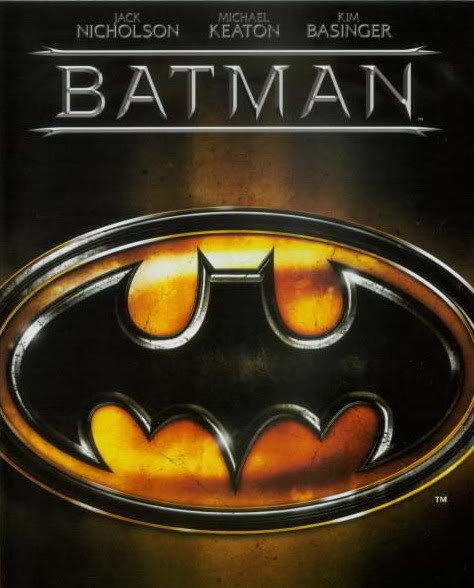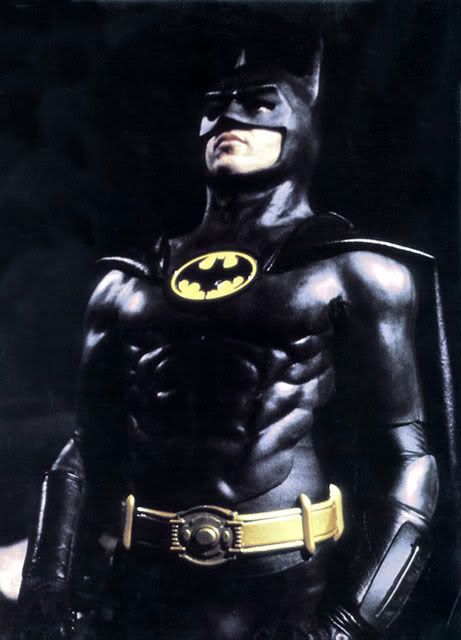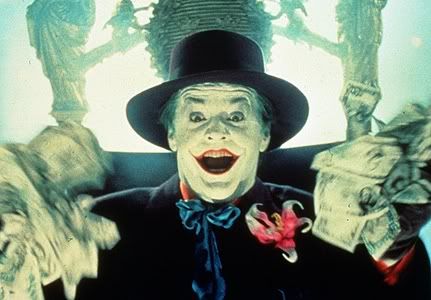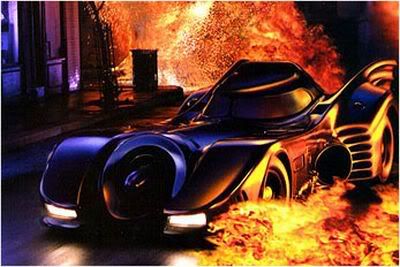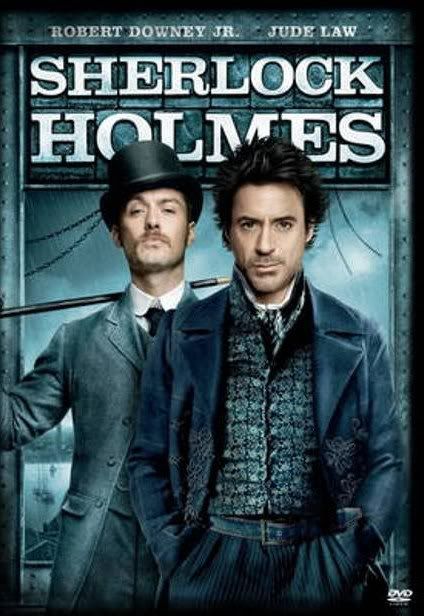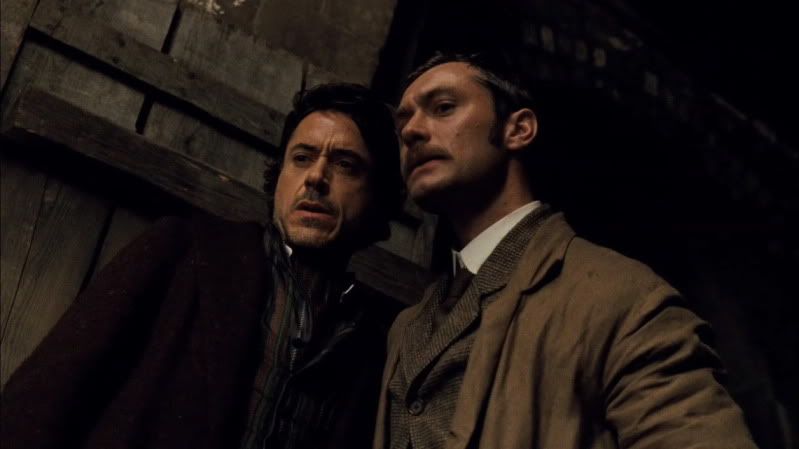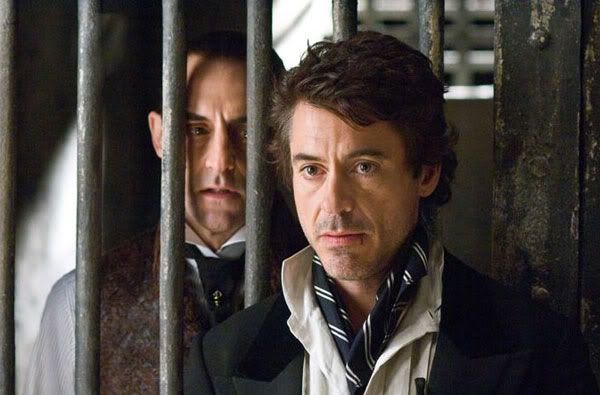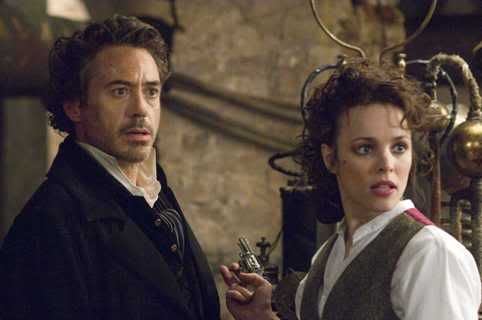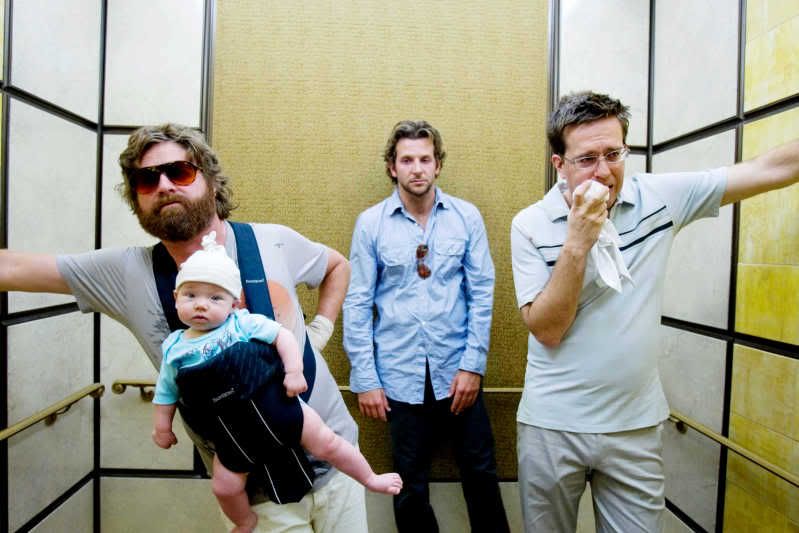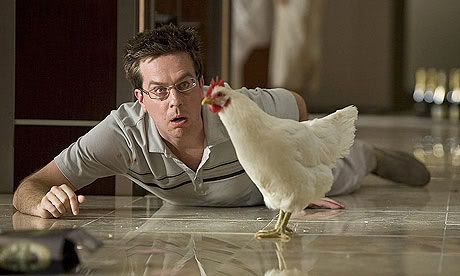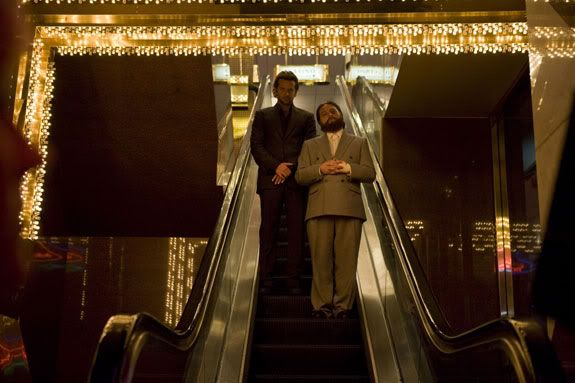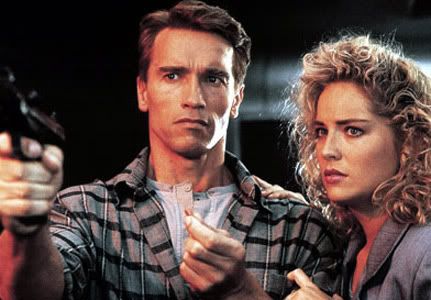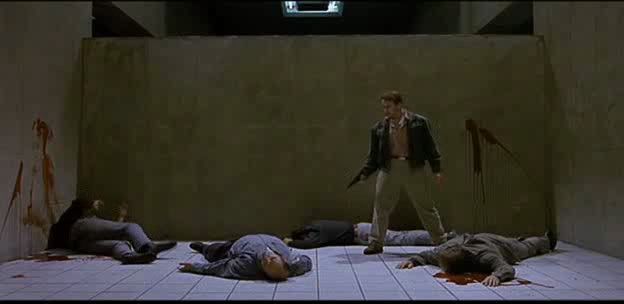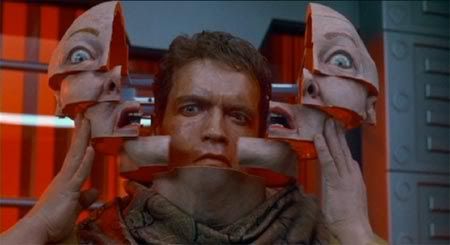
[audio:http://www.blueinkalchemy.com/uploads/kickass.mp3]
A lot of production companies, investors and even film-makers like to assume that we, as a movie-going audience, are stupid. They think we can’t handle movies with deep characters, complex plots or themes that transcend a work and try to tell us something about ourselves. So more often than not, a movie about giant fighting robots or girls with guy trouble or unlikely partners solving crimes tend to be watered down in such a way that they’re palatable to the blandest, lowest common denominator of palate out there. Thankfully, some other projects aren’t afraid to take a chance on something smart, to take conventions we as an audience might take for granted and flip things around just to see what happens. Kick-Ass falls into the latter category, not only in that it adapts one of those comic books that looks at super-heroes from a completely different perspective as most mainstream IPs, but also in that this adaptation differs quite a bit from the book. I wouldn’t know, since I haven’t read the books myself, so I’ll be cribbing notes from critics far better (or at least better known) than myself.
Dr. Punchy Wright can hunt me down later and break my face if it really becomes an issue.
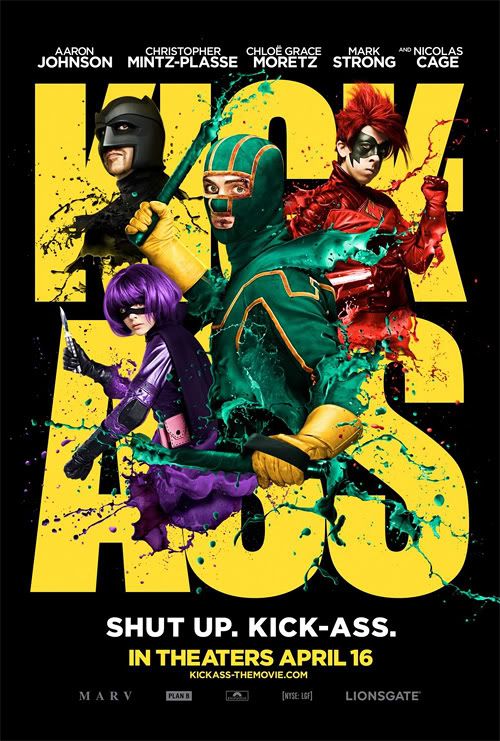
Taking cues from the Spider-Man movies back when they were still good, Kick-Ass introduces us to a teenage high school loser who is both a social outcast and an unashamed nerd. He does well enough in school to not be in the slacker crowd, he certainly isn’t a jock, he’s practically invisible to girls (which he claims is his “only real superpower”) and among his friends, to paraphrase his own words, he’s not the funny one. And yet, it’s living this kind of mediocre existence that leads him to buy a dopey-looking wetsuit, pick up a baton and start fighting crime. Or trying to. Mostly, he gets the crap beaten out of him. However, somebody with a camera phone tosses his exploits at the Internet, and WHAM, he’s a star. He’s a super-hero. And he’s getting pulled bodily into an escalating confrontation between a sadistic mob boss who’s also a family man, and a devoted father/endearing daughter team who are also sadistic costumed vigilantes.
Kick-Ass, as a comic, seems to be in the same vein as Watchmen or Wanted, taking a more cynical view of the world of super-heroism and trying to inject a dose of realism or humanity into the characters involved. Of the three, Watchmen weathered the transition to the screen the most intact, with its themes and nuances preserved in a nearly immaculate fashion. It’s a haunting commentary on the human condition couched in the deconstruction of super-heroes in general. Wanted was changed almost entirely from its comic book roots, which is a shame because a lot of the fun in that work comes from the way its protagonists behave given that they have super powers but none of the constraints of being ‘heroes’. Read the book if you want to know what I’m talking about, but what Wanted got right was the theme of doing something with your life that gets you out of the mundane things that you know in your mind are slowly killing you, but you do them anyway because it’s easier to get paid for that crap than it is to try something new and potentially dangerous. Kick-Ass also changes, ejecting as it does a lot of the cynicism from the printed page and opting for a more balanced moralistic stance. Sure, some of the stuff on screen is dark and a jab is taken at the audience’s expectations once or twice, but on the whole, part of what makes the experience so good is that it’s more interested in having fun than pointing out how pathetic you are.
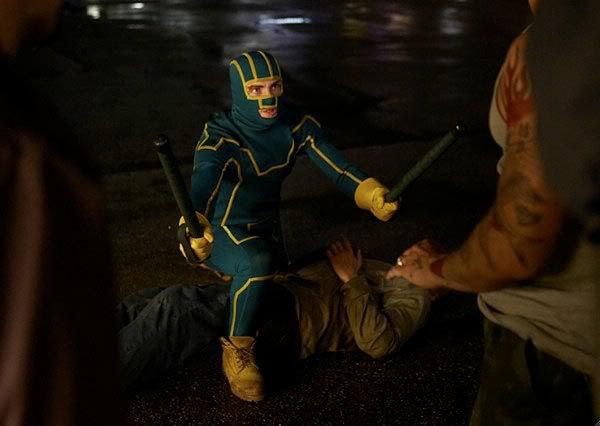
As a character, Kick-Ass is aware of how pathetic he is but he doesn’t let that stop him. He’s determined to at least try to make a difference, and it leads to him being extremely endearing and a true underdog of a hero. I think that some people might overlook Aaron Johnson’s work entirely but I can’t do that in good conscience. This is a solid leading role and as much as the movie is almost stolen entirely from his character, Johnson still comes through on the other side with a performance that is one of the best I’ve seen in a movie like this since the first two Spider-Man films.
In fact, Kick-Ass is, in terms of being endearing and realistic, almost a better Spider-Man than Spider-Man was. This film made me miss those early days of Tobey Maguire getting to know his powers and trying like hell to win Mary Jane’s heart. Both his Spider-Man and Aaron Johnson’s Kick-Ass have as their core power, not radioactive webbing or gamma rays or a magical MacGuffin, but real heart and a never-say-die attitude. If Kick-Ass as a film were a more cynical work, the optimism that fuels the teenage hero would have him dead in the 89th minute, the camera pulling back from his broken and lifeless body before cutting to black as some ironically upbeat music plays.

The film isn’t without some delicious soundtrack dissonance, however, and when it comes to that sort of thing, I will be hard-pressed to name a better example than Hit-Girl going to town on bad guys with bladed weapons to the music of the Banana Splits. Chloe Moretz completely owns both this role and pretty much any time she’s on screen. She’s the Comedian from Watchmen only 11 years old and wearing pig-tails: completely aware of how damn depraved her actions are but not giving a shit because she’s slaying bad guys. She knows that what she does shocks onlookers and will leave the cops who show up at the scene speechless, and that’s the whole point. If this is what she does to folks who break the law, what chance have you got? Better put down the cocaine and turn yourself in before you end up with a balisong in the throat, boss.
A lot of critics cried out in dismay at the very notion of this little girl perpetuating and, even worse, being the target of this level of high-energy, unabashed and completely bone-crunching violence. They seem to think that sick thrills or cheap laughs would be derived from the end result. It’s like the outcry that emerged when BioWare advertised Mass Effect included sex: completely uninformed and totally wrong. No, Hit-Girl’s exploits are not played for laughs. The way this girl has been brought up is entirely backwards. She knows it, her father knows it, and the audience knows it, too. However, she makes the most of what she’s got, because railing against her father’s vendetta is only going to make things worse. She wants her father to be happy, and the most expedient way to do that is to cut a bloody swath through the people who made his life miserable. Hit-Girl is a smart, dedicated and deep down very compassionate character, even if she is violent, cruel, foul-mouthed and maybe a little cracked. She’s got more complexity than most female characters in films today, and I for one am glad that the makers of Kick-Ass didn’t pull a single punch when it came to putting her through her paces.
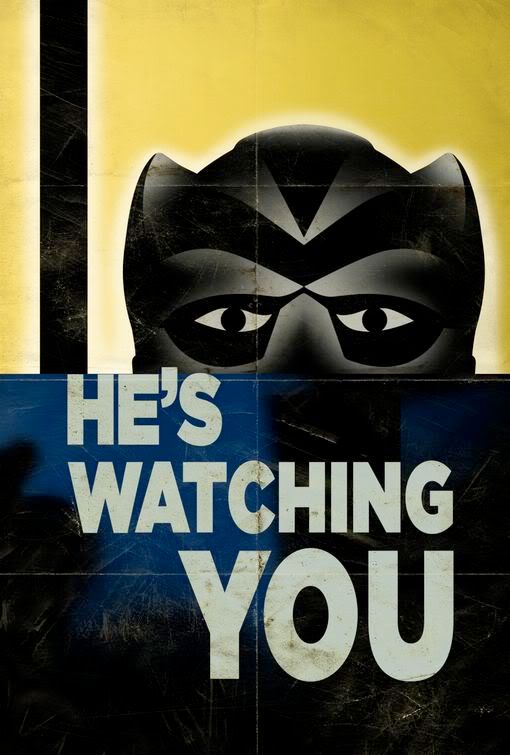
Speaking of Hit-Girl’s upbringing, another strong performance in Kick-Ass is Nicholas Cage as Big Daddy. His costume, performance and methodology are clearly a send-up of Batman, but his character is unconstrained by Batman’s one rule of not killing his opponents. If Batman did ever eschew that rule, it would look a lot like this. As a result, Big Daddy might be one of the best depictions of Batman ever, if that makes any sense. Cage does some things with the character that are at once fantastic and downright strange, and it’s a testament to his capabilities as an actor that are sometimes undercut by a bland concept or bad screenwriting, like National Treasure, Next or Ghost Rider. In fact, I’m going to say this right now, and I don’t care who knows it: I like Nicholas Cage. I think he’s talented and I enjoy watching him on-screen, even if I’m laughing at his ass. Half the crap he does isn’t necessarily his fault, and even when he’s off, he’s still memorable. I like him. There. I said it.
In terms of the rest of the production, Christopher Mintz-Plasse may surprise some of the fans of McLovin in his turn as a fellow comic-book fan donning a costume and calling himself Red Mist. It’s part of a plot that works very well and hums along without losing the audience, bolstered by the musical choices in both soundtrack and score. The film isn’t perfect, as the low budget shows in places and sometimes the film seems to have a bit of filler here and there, but it never gets in the way of the movie being fun. I get the feeling that a lot of the look and feel of the movie comes right out of the comics, and as much as the blacker portions of the story and theme have been left behind, the result still manages to take a jab at us as the audience as much as it puts its characters through the wringer. Like the changes made to Watchmen, my suspicion is that Matthew Vaughn and company kept to the spirit of the work while changing things up a bit to make the story a bit more suited for the silver screen.
Regardless of all of that, Kick-Ass kicks ass. Provided you’re a fan of super-heroes and not put off by the sort of hyper-realized violence that would be right at home in a Sam Peckinpah or Paul Verhoven flick, it belongs on your Netflix queue if not your DVD shelf. It’s a brutal, no-holds-barred, steel-toed-boot-to-the-crotch-while-laughing-all-the-while action comedy that has no fear, no hesitation and no limits. It’s a roller coaster through a demented carnival of bright costumes and gushing blood that occasionally smacks you in the face with a water balloon with profanity scribbled all over it in Sharpie.
And I wouldn’t have it any other way.
Josh Loomis can’t always make it to the local megaplex, and thus must turn to alternative forms of cinematic entertainment. There might not be overpriced soda pop & over-buttered popcorn, and it’s unclear if this week’s film came in the mail or was delivered via the dark & mysterious tubes of the Internet. Only one thing is certain… IT CAME FROM NETFLIX.

